
Rosja na drodze modernizacji - odbudowa pozycji mocarstwowej czy szansa na demokratyzację społeczeństwa
Panel dyskusyjny
Kremlin think-tank INSOR published a report which prescribed that Russia ought to go in the direction of state modernization and strategic partnership with Euro-Atlantic structures in the coming years. A call for reforms in all spheres of state and the economy has been declared. Modernization has become a subject of analysis and study in Russia. Will it become a reality though?
Europa przyszłości - jakich liderów potrzebuje Stary Kontynent w XXI wieku?
Goście specjalni Forum
Europa pod specjalnym nadzorem - przyszłość unii walutowej
Wykład:
Luc Frieden
Minister Finansów Luksemburga
The debt crisis in Greece as well as in other European states has exposed the weakness of the mechanisms of European governmentality. The European Union has found itself in trouble. The euro area is experiencing the worst economic period seen since its inception. A new dividing line has appeared, which no longer separates the members of the European Union into the developed West and the underdeveloped East. Rather, it creates a new division between states that are able to self-govern effectively (North) and those unable to do so (South). The creation of a new European financial mechanism, of a single economic government of the European Union, fiscal tightening and the creation of mechanisms to suspend the voting rights or membership in a monetary union could substantially change the management model of the European community.
New Strategic Concept of NATO – Eastern Dimension
Klaus Wittmann
42 years of Bundeswehr service that included troop command, academic phases, political-military work in the German Ministry of Defence and at NATO Headquarters. Closely involved in the creation of NATO’s 1991 and 1999 Strategic Concepts.
Brigadier General (ret.), Germany.
Polish Air Navigation Services Agency
Presentation
Środkowa i Wschodnia na obrzeżach globalnego społeczeństwa – czy region ten ma szansę stać się stefą dobrobytu i innowacji?
Panel dyskusyjny
The regional situation in Central and Eastern Europe varies. Those states that belong to the European Union are in a somewhat better position. However, in light of the financial and economic crisis, they face a difficult challenge of fiscal consolidation and budget deficit reduction. It is crucial for them to return to the path of economic growth and reduction of developmental delays. In contrast, those countries that lie outside of the EU community (Ukraine, Belarus, Moldova) are facing significantly diminished prospects of European integration. This is true not only due to the economic situation, but also to the political climate within the above states.
Boris Tarasyuk - Chairman of the Committee on European Integration, Ukraine
Wieczór biznesowy
w czasie którego młodzi liderzy będą mieli okazję lepiej się poznać, wymienić doświadczeniem, nawiązać kontakty.